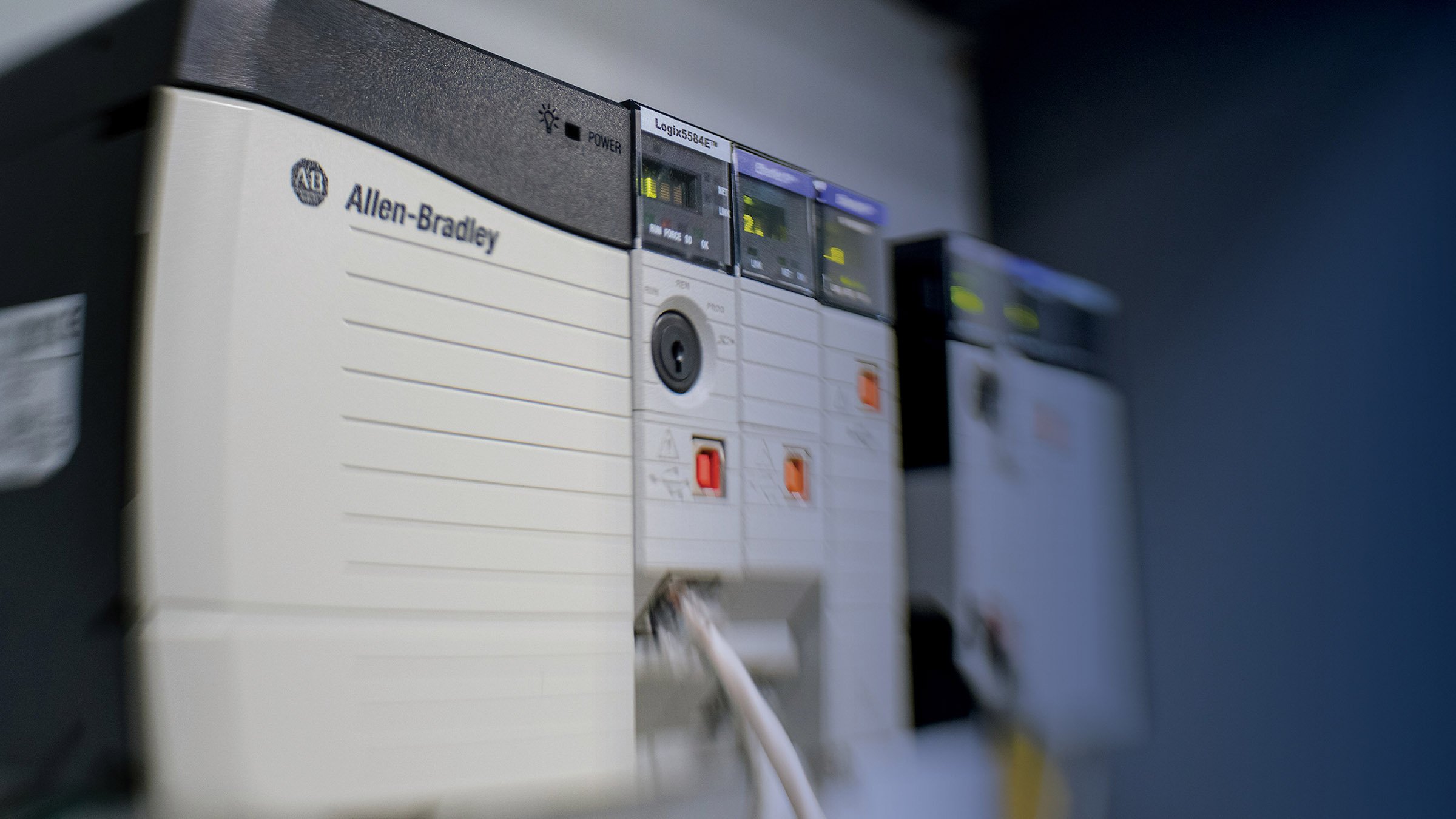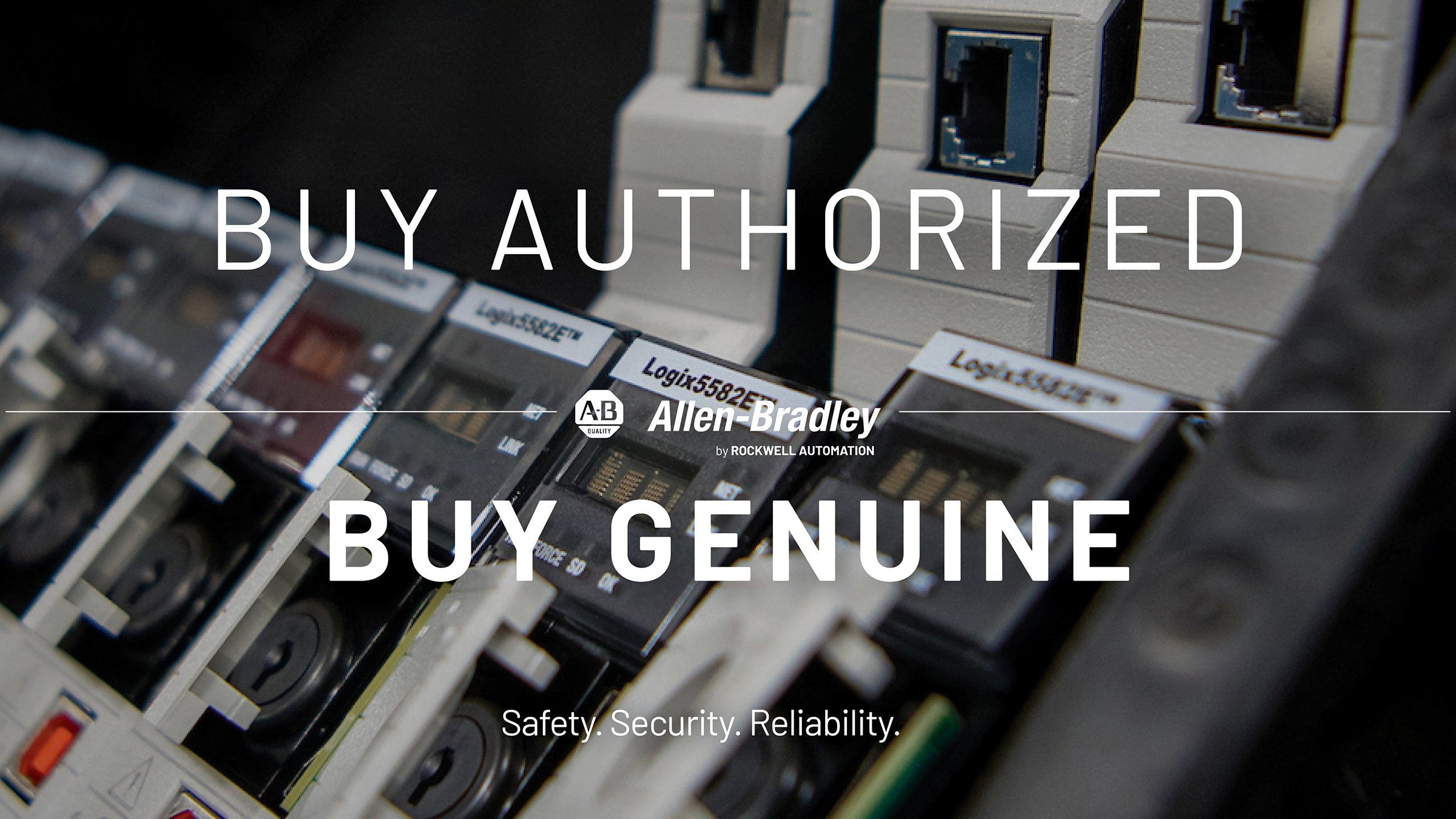Don’t fall for it: Supply chain interruptions have created an opportunity for unauthorized resellers and counterfeiters of industrial automation products
With many global markets currently experiencing supply chain interruptions due to raw materials and labor shortages, customers of industrial automation products are being tempted more than ever to purchase from alternative “gray market” sources – such as online resellers, parallel importers, and peer-to-peer marketplaces. Unfortunately, we have seen this result in customers unknowingly acquiring substandard and even counterfeit Rockwell Automation products on an increasing basis. Additionally, even if the products acquired from unauthorized sources are physically authentic, they often fall short of customer expectations and are always inferior to a Rockwell Automation product purchased from an authorized source. Don’t fall for it.
What is a “gray market”?
Rockwell Automation has a longstanding and respected limited distribution model. We sell our products either directly to customers or via our global authorized distributor network, and our authorized distributors are prohibited from selling to unauthorized resellers. Unauthorized resellers generally acquire surplus, old, used, and counterfeit products and often advertise them as “new” or using equivalent terms to unsuspecting customers. They may also acquire products from our authorized channels via deception. Some products enter the gray market as the result of theft or embezzlement. This trade of Rockwell Automation products advertised as “new” outside of our authorized channels is referred to as a “gray market”.
What do we mean by counterfeit products?
Counterfeit products are any Rockwell Automation trademarked products that contain any non-factory original elements advertised as “new”. Some examples of what we are seeing in the gray market:
- Old, used, modified, and repaired products being repackaged with fake boxes, fake factory seals, and fake labels to misrepresent them as “new”.
- Products that consist of or contain physically counterfeit elements such as plastics, displays, electronic components, and circuit boards.
True stories
- A North American customer that normally purchases from a Rockwell Automation authorized distributor turned to the web to find an alternative source because of price and lead-time pressure on a project. They ended up purchasing Rockwell Automation branded products from an online unauthorized reseller in the US that claimed to have stock. After the order was placed with the US company, the products were illegally shipped to the customer from an address in China. The customer was concerned about the origin of the products and after analysis by our experts we confirmed that a significant number of the products were counterfeit.
- A South Pacific-based customer came to us with quality concerns on Rockwell Automation products they had recently installed. Upon investigation, we identified that the products were not genuine, and it was later discovered that their procurement partner had been sourcing from an unauthorized reseller to cut costs. The customer had to validate their entire installation due to the counterfeit risks they were exposed to.
- A buyer in a European customer’s procurement team started purchasing Rockwell Automation products from unauthorized resellers to cut costs. The company’s engineering team noticed a drop in product quality and raised concerns with us on the authenticity of the products delivered. We confirmed that the products were counterfeit. The unauthorized reseller involved had illegally imported the products from a company in China that supplied fake documentation to support their false claims that they were an authorized supplier.
- A Southeast Asian customer was experiencing technical faults on Rockwell Automation products while commissioning machines purchased from an OEM. Quality concerns were raised by the customer and upon investigation we determined that the products in question were not genuine. It was discovered that the OEM had been purchasing from several unauthorized sources to cut costs.
Hard lessons
While each situation we encounter is unique, there is a common theme we see once a customer becomes aware that they have acquired counterfeit products:
- Any anticipated cost or lead-time savings that drove the purchasing behavior are not only lost, but customers are generally worse off than would have been the case if the purchases were originally made with an authorized source
- There is significant embarrassment for their procurement organization or partners
- There is conflict and concern in their organizations and with customers they serve due to the risks that they are exposed to when counterfeit products infiltrate their facility
- There is significant disruption to their projects or operations
- It is difficult to get the situation put right by the unauthorized resellers involved due to the “gray” nature of their businesses








